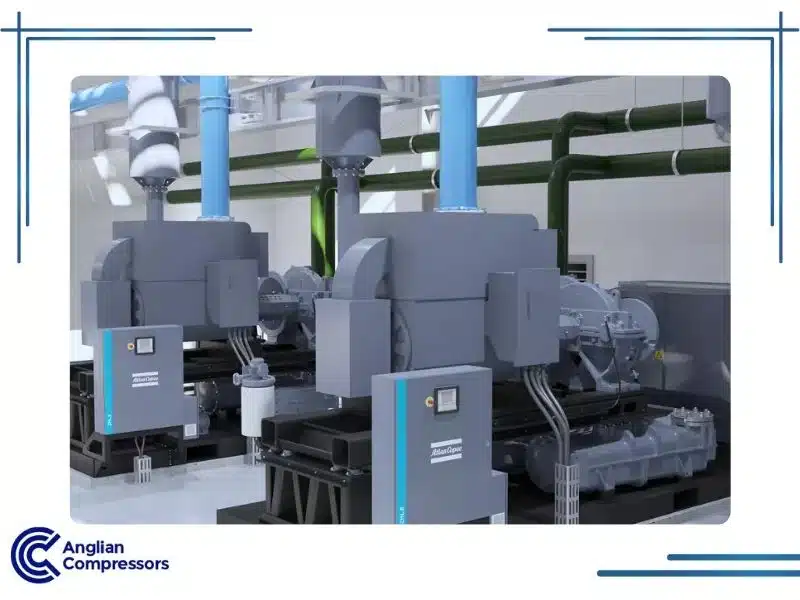Air Compressors for the Medical Industry
Air compressors are used in the medical field to provide compressed air where required. They play a role in pumps, clearing potential contaminants from an area, or for other purposes.
Air purity is essential within the healthcare field. Low-quality air can have a negative impact on health outcomes. Furthermore, the reliability of air compressors and their remaining operational life is critical. When used during treatment or an operation, compressor systems often require either fail-safes or fallback options in the event of an unexpected shutdown.
Both the Pressure Systems Safety Regulations (2000) and the 2002 Control of Substances Hazardous to Health Regulations (COSHH) relate specifically to health regulations. The ISO 13485 standard is also relevant because it governs medical device regulations.
In this blog post, we discuss air compressors and their use in the medical industry.
Types of Air Compressors Used in the Medical Industry
Oil-free Air Compressors – These types of compressors do not use oil for lubrication. They are designed differently to operate oil-free, allowing medical and other relevant industries to produce compressed air that’s free from oil residue.
Desiccant Air Dryers – These dryers use desiccant material to remove moisture. Moisture presence eventually leads to bacterial growth. Equipment tends to experience more breakdowns in humid environments. These compressors are a usable solution in medical environments and some dental clinics.
Rotary Screw Compressors – For around-the-clock reliability, it is hard to beat a rotary screw compressor. They operate relatively quietly 24/7 and barely skip a beat.
Portable Compressors – Used by emergency services and mobile medical setups, portable compressors are compact and are wheeled around. They lack the capacity or continuous operational advantages compared to their larger brethren.
Are you unsure which air compressor is best for a medical environment? Talk with our experts at Anglian Compressors.
Features Required for Medical-grade Air Compressors
High Filtration Standards (ISO Classes): Air purity levels and filtration are achieved through superior air filtering and cleaner air. When air is compressed, unclean air gets magnified through the air compression process. Different ISO classes relate to various air purity levels; the highest purity is reserved for healthcare and other sensitive industries.
Low Noise Operation: Noise is a significant factor in smaller environments. For example, a dental clinic is more sensitive to the noise generated compared to a larger hospital running a compressor in an air compressor room. Selecting the right medical air compressor requires examining the typical decibels emitted and choosing accordingly.
Energy Efficiency: After the initial purchase, the running costs mostly relate to energy usage. Using a new, energy-efficient compressor helps reduce expenditures. Older compressors are sometimes upgradeable, but modern compressors offer interesting cost savings.
Maintenance and Reliability: Oil-free compressors benefit from predictive maintenance and, to a lesser extent, preventative maintenance. These ensure smooth operations with fewer hiccups or troublesome breakdowns. Service contracts and extended warranties also increase overall reliability.

Applications of Air Compressors in the Medical Industry
Operating Theatrical Equipment – Medical devices and medical tools are often powered by air. Without a supply of compressed air, they cease to function. When operating on a patient, this would be a critical failure.
Patient Care – Vital medical equipment, such as ventilators and respiratory therapy machinery, depends on compressed air to operate.
Dental Practices – Compressed air is used to sterilise dental surgeries. Many dental tools also rely on oil-free air to operate dental tools that are used during oral surgeries.
Laboratory Use – Both research and pathological research labs use compressed air to operate precision instruments. These tools are critical for conducting accurate research.
Safety and Compliance Standards
Special compliance standards apply within the healthcare field. Medical devices are well-regulated, with the ISO 13485 standard being most applicable. This also applies to medical air compressors.
Manufacturers are required to adhere to all applicable standards relating to quality and safety. These become ever more stringent throughout the product’s life cycle.
Medicinal gases are also heavily regulated. The Medicines & Healthcare Products Regulatory Agency regulates gases, with manufacturing sites subject to regular inspections. Quality management is certified to the ISO 9001:2015 standard.
To learn more about safety and compliance standards, speak with our team at Anglian Compressors.
How to Choose the Right Air Compressor for Your Medical Facility
Factors to Consider
When choosing air solutions, there are different factors to consider:
Size: What size compressor fits into the available space?
Capacity: How much compressed air production is required?
Type: What type of air compressor is best in your situation?
Necessary Features: Are there certain features that a compressor should possess to meet your medical application needs?
Consultation Services
Anglian Compressors offers various consultation services to clients. Advice is tailored to your specific requirements. This includes suggestions for air system design, equipment selection, and installation.
Frequently Asked Questions
Why are some air compressors noisier than others?
Compressors use various internal designs necessary to compress air. The applied method alters the level of decibels emitted during operations. However, it also materially changes how much compressed air is produced.
Can an air compressor operate 24/7?
Some air compressor models – not mobile compressor units – can operate continuously. However, engines do benefit from planned downtime. It is often better to include built-in redundancies, like an extra compressor, rather than risk overextending the air system.
Are new compressors more cost-efficient than older models?
Yes, the cost savings when operating a new compressor are considerable. Older compressors are unlikely to ever operate as efficiently.
What maintenance method is best?
A: The latest AI-based predictive maintenance model is superior to other alternatives. Rather than relying on systematic, calendar-based maintenance checks, AI and machine learning help predict issues before they arise.
Conclusion
Air compressors for hospitals, clinics, dental surgeries, and veterinary clinics need to be specially selected and configured. Necessary features may include higher filtration standards, better energy efficiency, low noise during use, and high reliability.
Strict regulations also apply regarding safety and compliance, which must be met. Therefore, it’s necessary to opt for a highly reliable air system that delivers performance where it matters and complies with all pertinent regulations.


